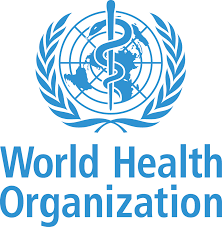“The ARCC’s decision is based on critical analysis of the four – Cameroon, Central African Republic, Nigeria and South Sudan – country’s polio surveillance, immunisation, laboratory capacity, including field verification visits.
“All countries have shown unwavering commitment and dedication to eradication of polio.”
According to WHO, the Commission was set to make its final decision about the region’s wild poliovirus status in August 2020.
“The commission has validated submission by the four countries and their documentation grants them wild polio-free status.
“In August 2019, the African Region became eligible to be certified free of wild poliovirus. After Nigeria, the last wild poliovirus endemic country, recorded no new cases three years since it last reported cases of wild poliovirus.
“The commission had already accepted the documentation of the other 43 countries in the region.’’
In a statement posted on the agency’s website, Prof. Rose Leke, ARCC Chairperson, said the commission was satisfied with the documentation that the four countries had presented.
“We are reviewing updated reports from the other 43 countries in the WHO African Region.
“We anticipate that by August 2020, we will deliver our final decision on the region’s certification status of wild poliovirus eradication.’’
The statement also quoted Dr Matshidiso Moeti, WHO Regional Director for Africa, as saying: “This achievement by Cameroon, Central African Republic, Nigeria and South Sudan is a major step towards the eradication of wild poliovirus in the African region.
“As the continent struggles with COVID-19, this milestone shows that when leaders, partners, health workers and communities come together we can triumph over the most difficult health challenges.”
According to the statement, if the region is certified in August, it would be the fifth of the six WHO regions to be declared free of wild polio.
“However, the scale of ongoing circulating vaccine-derived polio outbreaks is a battle the region is striving to win.
“Efforts are underway to urgently address the circulating vaccine-derived poliovirus outbreaks, also within the context of polio eradication being a Public Health Emergency of International Concern.
“Even though they are not wild polioviruses, such rare strains – which can emerge in areas of low population immunity – also paralyse children”.
The News Agency of Nigeria (NAN) reports that Polio is a viral disease that is transmitted from person to person, mainly through a faecal-oral route or, less frequently, through contaminated water or food, and multiplies inside the intestines.
While there is no cure for polio, the disease could be prevented through administration of a simple and effective vaccine.
That is why efforts are underway across every country to rapidly boost immunity levels in children and protect them from polio paralysis.
source: SunNews

 The independent Africa Regional Certification Commission (ARCC), responsible for certifying the eradication of wild poliovirus in the World Health Organisation (WHO) African Region, has accepted the submission by 47 African countries for polio free status. WHO Regional Office for Africa in Brazzaville, Congo, made this known on its official twitter account @WHOAFRO.
The independent Africa Regional Certification Commission (ARCC), responsible for certifying the eradication of wild poliovirus in the World Health Organisation (WHO) African Region, has accepted the submission by 47 African countries for polio free status. WHO Regional Office for Africa in Brazzaville, Congo, made this known on its official twitter account @WHOAFRO.




